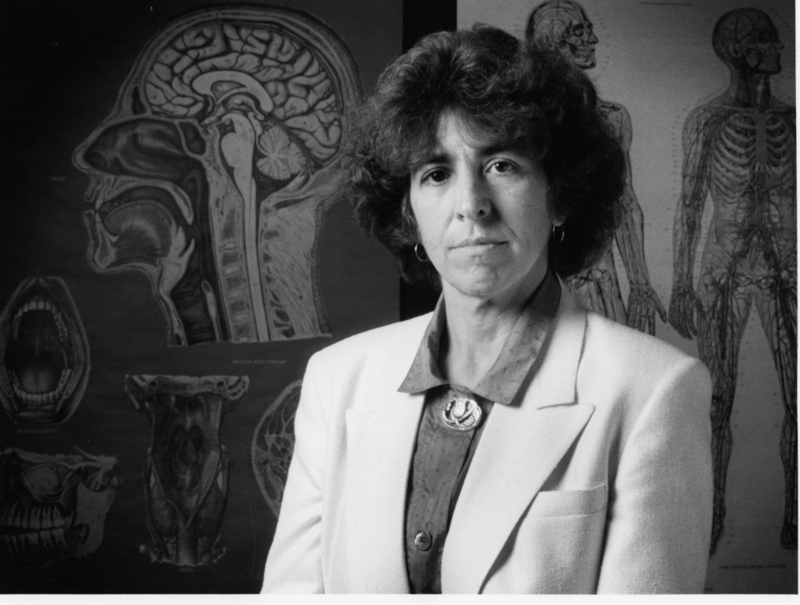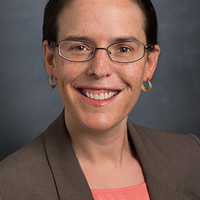May 2021 - Dr. Ruby Mendenhall
Dr. Ruby Mendenhall is the Assistant Dean for Diversity and Democratization of Health Innovation at the Carle Illinois College of Medicine, and is an Associate Professor in the departments of Sociology, African American Studies, Urban and Regional Planning, Gender and Women's Studies, Biomedical and Translational Sciences, and Social Work. In addition, Dr. Mendenhall is affiliated with the Carl R. Woese Institute for Genomic Biology, the Women and Gender in Global Perspectives program, the National Center for Supercomputing Applications, the Cline Center for Advanced Social Research, the Epstein Health Law and Policy Program, the Family Law and Policy Program, and the Institute for Computing in Humanities, Arts, and Social Sciences. Her research investigates the impacts racial segregation and high rates of violence have on Black mothers' physical and mental health, as well as the long-term health impacts of financial stress on low-income families.
Check out Dr. Mendenhall's feature on Storied.
From the University Archives
Just as Dr. Mendenhall works to create a curriculum that helps students at the Carle Illinois College of Medicine balance their scientific studies with the medical humanities and social sciences, so too did Dr. Paula Treichler, Dean of Students at the University of Illinois Schools of Basic Medical Science and Clinical Medicine. Dr. Treichler received her Ph.D. in Linguistics and Psycholinguistics from the University of Rochester, and researched medical communications, especially related to the AIDS epidemic. In addition to her work with the medical school, she was also affiliated with the Institute of Communications Research and the Women's Studies Program. During and after Dr. Treichler's tenure as Dean of Students, she advocated for the introduction and implementation of a medical humanities curriculum within the University of Illinois medical colleges. Dr. Treichler also advocated for health care professionals to incorporate interdisciplinary studies in their continuing education.
One program that Dr. Treichler had considerable influence on was the Medical Humanities and Social Sciences (MHSS) Program at the College of Medicine at Urbana-Champaign. As part of this program, all M.D. students were required to take a summer sociology class (Sociology 396) taught by Dr. Treichler, entitled, "Special Topics in Medicine and Society." This course incorporated a lecture and discussion section, where faculty guest speakers presented on areas of their expertise, such as social and cultural approaches to health and disease, public health, and communication in medical settings. In addition, all students conducted individual research projects that connected the things they learned in lecture with applications in a clinical setting. In addition to this required course, the MHSS program also presented medical students with a series of full length courses in humanities and social sciences—many of which were taught by professors who guest lectured in Sociology 396. Some topics included human sexuality, gerontology, medical ethics, and health care policy.
Aside from the required MHSS summer course and electives for medical students, Dr. Treichler also helped to facilitate the Medical Scholars Program (MSP) at the University of Illinois, which allowed students to pursue a dual M.D./Ph.D. in a second discipline. While many students pursued the PhD (or other graduate degree) in a traditional biomedical field like biochemistry, about half of all participants studied a field of science that was less traditionally associated with medicine—including computer science and physics. Roughly one quarter of students in the MSP sought PhDs in humanities, law, or social sciences. Some interdisciplinary programs that participated in the MSP included the History, Philosophy, and Sociology of Science, the Institute of Government and Public Affairs, and the Women's Studies Program—where Dr. Treichler taught.
The MHSS and MSP were innovative programs on campus. Dr. Daniel K. Bloomfield, Dean of the School of Basic Medical Science and of the University College of Medicine at Urbana-Champaign, spoke at a conference in 1987 about the university's efforts to incorporate social sciences and humanities into the medical curriculm. He observed, "the MHSS curriculum has not been without its critics both from the students and from the more traditionally oriented faculty," but that over several years, feedback on Sociology 396 had become generally positive with students noting that "this course could be the difference between my being an aware, sensitive, well-adjusted physician, or being one who is suddenly shocked at the experience of medical education." Bloomfield acknowledged that the scientific demands on students were intense, and that there was constant pressure to include more courses in traditional areas like biochemistry and microbiology, as well as clinical areas like pediatrics, internal medicine, and surgery. However, he argued that studying social sciences was critical for success in these more traditional aspects of medical education. Complex problems like increasing human lifespans and better treatment for diseases, as well as crises like AIDS demanded both scientific and humanistic understandings. Bloomfield concluded his speech, "As medicine becomes more effective, changes in human demography and ecology that follow medical success will inevitably be associated with concomitant social issues. These issues will likely multiply more rapidly than either society or the medical profession can handle. Medical schools which ignore these trends...do their students a serious disservice."
Medical humanities and social sciences continue to be important parts of the medical curriculum at the University of Illinois at Urbana-Champaign, and Dr. Mendenhall's background in interdisciplinary health research will continue to push medical students to understand the social impacts of medicine.
Sources and Further Reading
Paula Treichler Papers, 1970-1998, University of Illinois Archives
Paula Treichler, How to Have Theory in an Epidemic: Cultural Chronicles of AIDS, Duke University Press, 1999.



